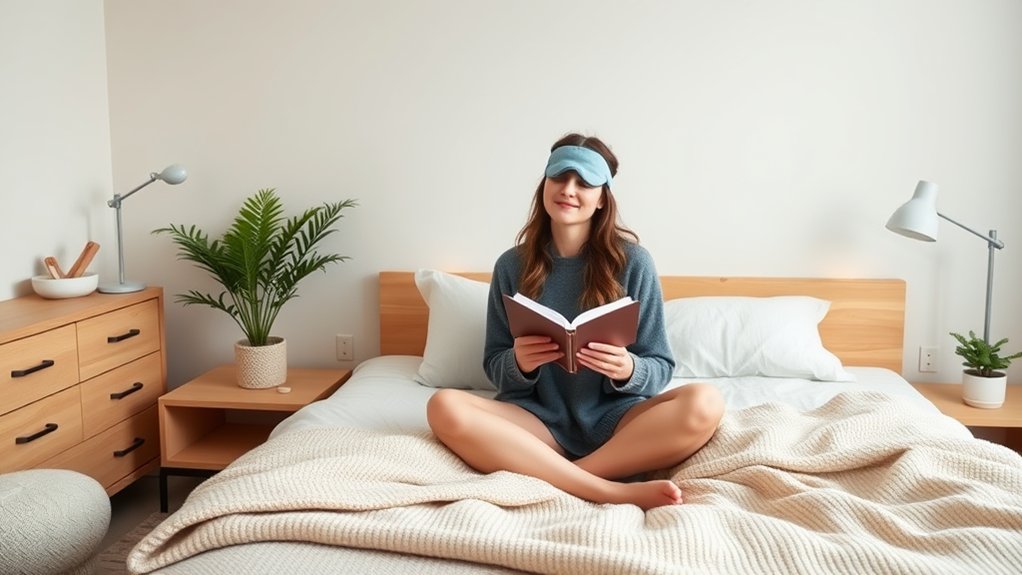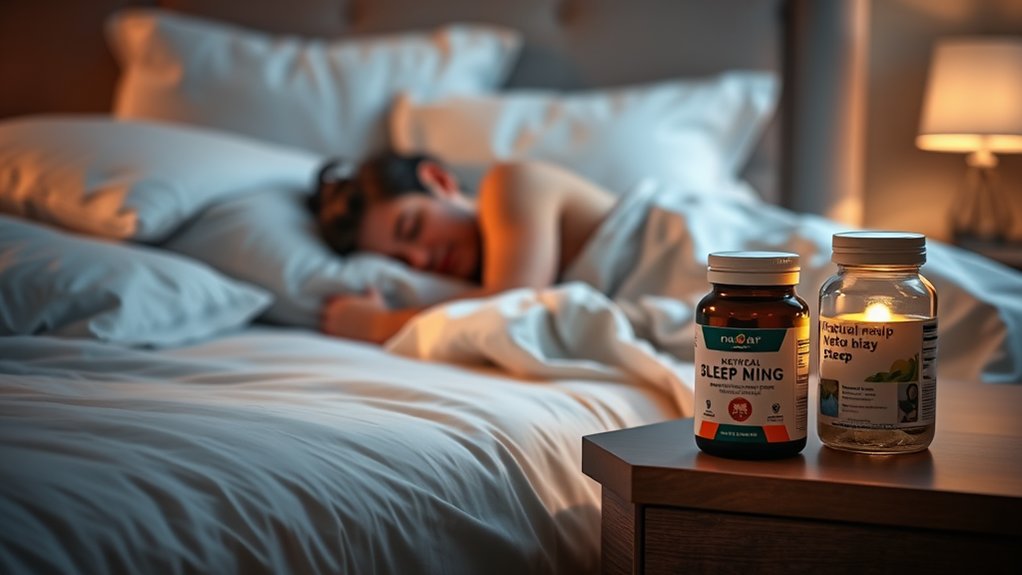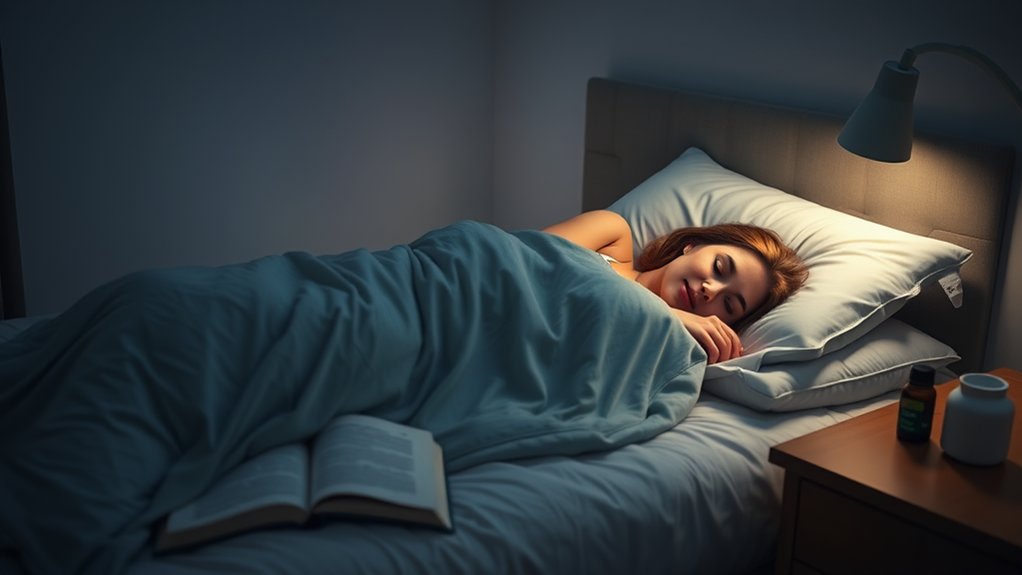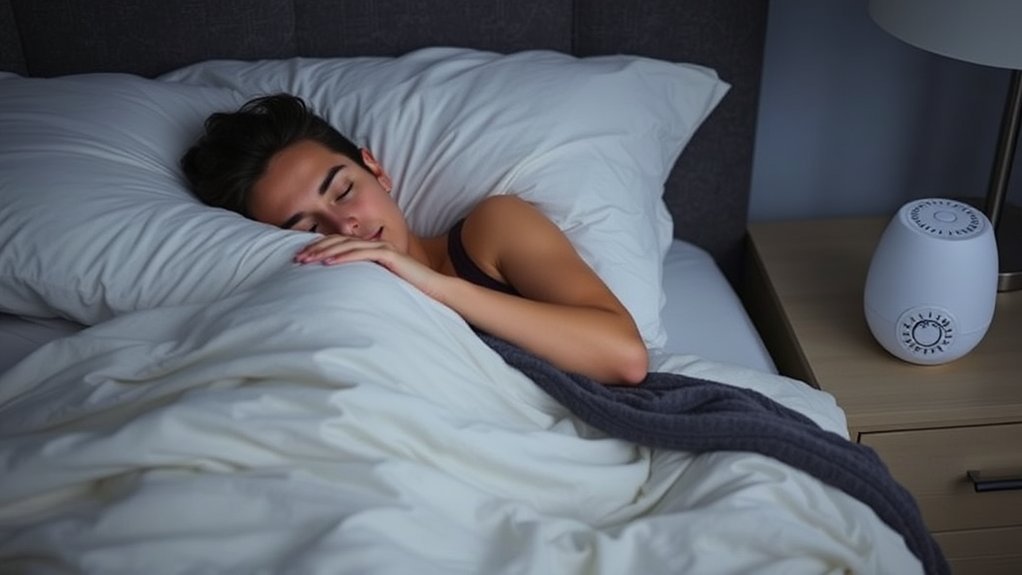You’re Not Broken: How Sleep Misperception Creates False Narratives About Your Rest
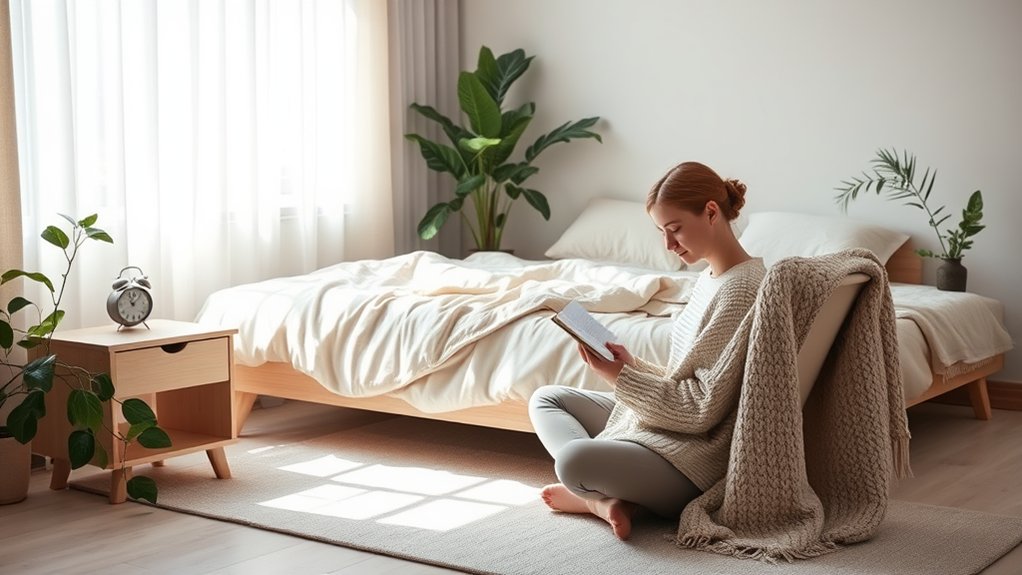
So, you think you’re broken because you can’t sleep? Newsflash: it’s sleep misperception messing with your head! It tricks you into believing you’re wide awake while your body’s snoozing like a champ. It’s enough to drive anyone crazy, right? Forget the eight-hour myth and quit obsessing over every little toss and turn. You’re probably getting more rest than you think! Stick around, and you’ll pick up some killer tips to turn that sleepless drama into dreamy nights!
Understanding Sleep Misperception
Have you ever laid in bed, staring at the ceiling, convinced you’re wide awake, only to find out you actually snoozed for hours? Yeah, that’s sleep misperception for you.
You might think you’ve been tossing and turning all night, but your brain’s just playing tricks. It’s like when you swear you heard your phone buzz, only to realize it’s been silent. Frustrating, right?
You might believe you’re not getting enough sleep, but your body could be clocking in those precious hours while you’re busy worrying.
The irony? You’re stressing over your lack of rest while you’re actually napping like a pro. Your brain’s the ultimate drama queen!
Common Myths About Sleep Quality
Let’s bust some myths about sleep quality, shall we?
First off, you don’t need eight hours of sleep to be functional. Seriously, some people thrive on six and still kick ass. Ever heard of “sleep debt”? Yeah, it’s not like a credit card—you’re not gonna wake up owing a full night’s rest.
Now, let’s tackle that fancy notion that all sleep is equal. If you think you’re doomed because you can’t nap like a baby, think again! Quality matters more than quantity.
Quality sleep trumps quantity, so don’t stress if you can’t nap like a pro!
And let’s not forget about the “if you’re awake, you’re restless” myth. Just because you’re tossing and turning doesn’t mean you’re failing at sleep. You might just be plotting world domination or dreaming about tacos!
The Impact of Anxiety on Sleep Perception
When anxiety creeps in, it doesn’t just mess with your mind—it crashes the sleep party like that one friend who shows up uninvited and drinks all your beer.
Suddenly, you’re tossing and turning, convinced every creak in the house is a burglar. You start counting sheep, but they’re all dressed in anxiety, giving you judgmental looks. Your brain kicks into overdrive, replaying cringe-worthy moments from high school like a bad movie you can’t turn off.
You think you’re wide awake, but in reality, you’re probably not as awake as you feel. Your perception of how well you slept? Totally skewed.
You might believe you’ve been staring at the ceiling for hours when you actually caught some z’s in between the panic. And let’s be real—feeling like a sleep-deprived zombie just makes the anxiety worse, creating this vicious cycle of sleeplessness.
Strategies to Reframe Your Sleep Narrative
You’ve got to kick that anxiety’s ass and take control of your sleep narrative, or it’ll keep rewriting the script for you.
Seriously, stop letting those pesky thoughts mess with your head. Here’s how to flip the script and reclaim your nights:
- Journaling: Write down your fears about sleep. It’s like talking to a therapist, but cheaper and with fewer awkward silences.
- Mindfulness: Focus on your breath instead of your racing thoughts. Picture your worries floating away like balloons—until they pop, and you can finally chill.
- Sleep Rituals: Create a fun bedtime routine. Try reading, sipping herbal tea, or even dancing like nobody’s watching—just don’t pull a muscle!
Reframing your narrative isn’t just about the sleep; it’s about your entire vibe.
Embracing a Healthier Relationship With Sleep
If you think sleep is just about hitting the pillow and counting sheep, think again! It’s time to ditch the “I’m broken” mentality. Instead of obsessing over your Z’s, focus on what makes you feel good.
You don’t need to be a sleep scientist to know that a good night’s rest doesn’t come from stress. So, stop scrolling through sleep hacks that promise the world but deliver a big fat nothing.
Embrace your quirks! Maybe you need a bedtime playlist of ’90s hits or a cozy blanket that feels like a hug from your grandma. Create your own sleepy ritual! Light some candles, sip chamomile tea, or read a book that doesn’t make you want to hurl.
Final Thoughts
So, here’s the deal: you’re not some sleep-deprived zombie destined for a life of caffeine and crankiness. You’re just caught up in the wild world of sleep misperception, where tossing and turning feels like an Olympic sport. By flipping the script on your sleep narrative, you can kick those pesky myths to the curb and finally embrace a chill relationship with sleep. Remember, even the Sandman has his off nights—you’re not broken, just human.
As you navigate this journey, it’s important to prioritize emotional safety and address the deeper layers of nighttime anxiety and stress. This is where the Sleep Return program comes in. With its trauma-informed, nervous-system-based approach, it offers a gentle, healing-centered path to restoring your relationship with rest. Consider taking this step towards a more peaceful night’s sleep; you deserve to feel safe and supported on your journey to healing.



